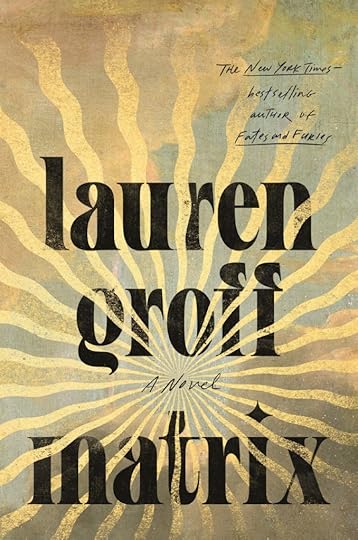Review: Matrix by Lauren Groff

Matrix by Lauren Groff has been on my TBR for ages, and it wasn’t until I recently read The Vaster Wilds that I figured I better finally read this one.
What I thought I was getting into: a historical novel about Eleanor of Aquitaine.
What I actually got: Horny Medieval Nuns, but make it Literary
But in all seriousness, I did enjoy Matrix and found it beautifully written (as is to be expected with Lauren Groff).) Matrix follows 12th century abbess Marie de France, a contemporary of Queen Eleanor of Aquitaine who is sent by the queen to become a nun in England. Being an extended royal family member, Marie is essentially put on the fast track to become the abbess of the struggling abbey. Under Marie’s guidance and visions, the abbey flourishes as a powerhouse for the local community, as well as for the nuns within.
While little is known of the actual Marie, Groff has imagined her as a woman who may or may not have been the former lover of Eleanor and took her own servant Cecily as her lover. It is no surprise, then, that at the abbey and among women all the time that Marie engages in more same sex relationships, as do some of the other nuns with each other. What is interesting here is that Marie doesn’t have any religious guilt about this love and these pleasures of the flesh, but rather it is viewed through a prism of a sort of divine love and spirituality. Historically speaking, men/men relationships were viewed as blasphemous at this time, but women/women sexual relationships were not actually viewed as “sex” in the same way.
While Matrix follows almost the entirety of Marie’s day to day life and the realization of her visions (such as constructing a labyrinth outside of the abbey for protection,) Groff’s prose and narrative structure are more abstract (which is on par for her style.) Matrix is certainly about the harsh reality of the day to day life of nuns in the 12th century, but it is also very much an exploration of female love, spirituality, pleasure, and power–and finding peace and ownership of all those things, without shame.
If you’re looking for something with a more traditional plot structure and style, Lauren Groff may not be your cup of tea, but if you are open to beautiful, thought-provoking prose exploring aforementioned themes set against the grit of a medieval back drop, then this one might be for you.



